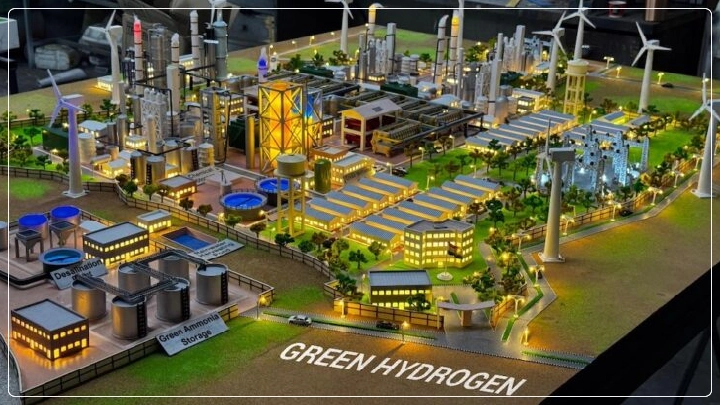April 2025
A significant £3 million of funding has now been secured by the University of Bath for 10 innovative research projects that will transform hydrogen and low-carbon liquid fuel technologies. These are all part of the grand aim of the UK in the hydrogen value chain for production, storage, use, and alternative carriers to mitigate global warming and help finalize the carbon-neutral target of 2050.

Professor Tim Mays, UK HyRES Head, said that the funding can set an excellent foundation for the best leading research talent to answer questions that are most critical about how hydrogen and zero-carbon alternatives could enable us to reach our goals for net zero. Out of 160 proposals, these projects have been discovered and will be funded under the Hub's flexifund Scheme, and £2 million committed to the flexifund in due course.
Lead: Professor Mark Symes, University of Glasgow
Objective: To produce hydrogen straight from seawater within an electrolytic apparatus which, utilizing dissociated electrolysis, separates the production of oxygen and hydrogen in terms of time, rate, and location, making this alternative somewhat game-changing in regions with less fresh water like those stretching out afar or even in the Sahara Desert.
Lead: Dr. Alfonso Martinez-Felipe, University of Aberdeen
Objective: Characterize the best materials for H2 storage and transfer; understand safety issues in the long-range transport of H2. Also, this project will investigate the feasibility of converting some existing offshore assets for North Sea hydrocarbon exploration into alternate-use hydrogen assets.
Lead: Professor Aidong Yang, University of Oxford
Objective: Demonstrates the possibility of transforming ammonia into an energy carrier for hydrogen in reducing the carbon emissions from the steel production process. The work will also see another feasibility in consolidating ammonia direct reduction and hydrogen direct reduction: applications responsible for about 8% of carbon dioxide emissions worldwide.
Lead: Professor Alexander Cowan, University of Liverpool
Objective: Develop advanced electrocatalyst-adsorbate configurations to improve water electrolysis of anion exchange membrane (AEM) and devise device life extension plans. AEM-WE is a viable low-cost alternative to PEM-WE technology.
Lead: Dr. Alex Walton, University of Manchester
Objective: Delineate Roxides of Ru as substitutes for Ir in acidic water electrolysis with large scale and continuous green hydrogen production: Ru is resourceful and cheaper than Ir.
Lead: Dr. Dawei Wu, University of Birmingham
Objective: Enhancement of efficiency in ammonia combustion either by fuel additives being added or by designing a catalytic burner for the combined combustion of ammonia and hydrogen, which will be practically used in industrial applications with an emission level of zero.
Lead: Professor Gerard Fernando, University of Birmingham
Objective: To produce low-cost, robust sensors based on optical fibers and multifunctional ones, particularly for hydrogen storage and transportation enhancing its safety and efficiency.
Lead: Professor Jennifer X. Wen, University of Surrey
Objective: Identify scenarios and study safety issues in the global transportation, storage, and bunkering of ammonia that show it as a crucial carrier for hydrogen as well as an alternative fuel in the marine transport sector
Lead: Professor Stephen Skinner, Imperial College London
Objective: Investigate the lasting effects of deterioration of materials on electrochemical efficiency and durability of metal-supported solid oxide electrolyzer technology to ensure reliability and efficiency.
UK HyRES is continuing to work on the infusion of various hydrogen technologies in their interesting projects including green steel production and ammonia in its role enhancement as a carrier of hydrogen among the aims associated with such operations of market-oriented initiatives. The expectation is also getting the critical gaps realized when energy systems are being made sustainable. Professor Mays expressed optimism about these projects and the potential for additional funding. These pieces of research on the discovery will help in shaping the hydrogen economy of the UK, having more to contribute in terms of the net zero target of the United Kingdom. Hereby, massive research is being invested into developing very innovative hydrogen projects that place great emphasis on serving the most critical role that innovation can impart in making a sustainable environment and economy.
April 2025
April 2025
April 2025
April 2025